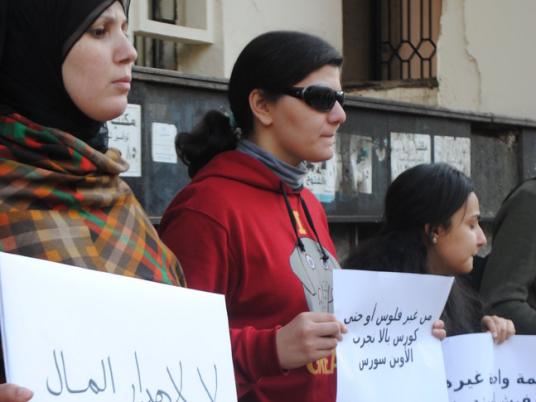
A group of technology activists gathered in front of the Cabinet on Sunday morning to protest a governmental deal with software giant Microsoft to buy licensed software for public agency worth almost US$4 million.
On 26 December, the official Facebook page of Prime Minister Hesham Qandil announced that one of the Cabinet's main achievements is that it sealed a deal with Microsoft to buy and maintain licensed software for the government worth $43,762,321, to be paid over four fiscal years.
"Stop capital flight now" and "Why should we spend money over something that can be free?" were among the signs carried by activists who include programmers, designers, young entrepreneurs and promoters of freedom of information.
"We reject these decisions which have been taken without studying alternatives which we consider to be more suitable," read a statement issued by a group of activists and signed by tens of organizations and individuals.
The main contention with the deal, the activists say, is that Microsoft products bought by the government are imported, expensive and their code source is usually closed and protected by rigid copyright rules which do not allow for knowledge sharing and generation. Meanwhile, an alternative lies with locally conceived, less expensive software, whose open code source enables copying, sharing and building more software.
"We see this decision to buy monopolistic products as a loss of the resources of the Egyptian people, in these difficult times, when governments are resorting to free and open source software," the statement read.
"What the government is buying is the license to use software and not new [software]," says Ali Shaath, co-founder of the Egyptian Association for Free and Open Software and of the Arab Digital Expression Foundation.
"We're talking about the same computers, the same software, no extra development and no extra training," Shaath said, explaining that the free and open software alternative will cost zero in comparison since its licenses are not for sale, and its only cost is derived from customization and training.
Ready-made and closed software is also not amenable to changes, the statement added, noting that from a security perspective, government systems should be based on national software and not imported ones.
Many of Microsoft’s deals with the government are based on leasing software licenses. The new deal appears to be a shift as the government decided to buy the software license instead.
Shaath and others complain about the scarcity of details about the deal at hand. "We demand to see the contract. This is the first time we see numbers."
The activists believe that the free and open software community of developers is able to respond to the government's needs for that contract. A case in point is the portal developed with free and open software to provide voters with information ahead of the March 2011 referendum.
However, a national change to the by-default adoption of free and open software would require a change on educational levels, where the default software in use is the closed and licensed software.
"The information technology capacity in Egypt is high. If requirements [for free and open software] are there, people adopt very fast," says Shaath.



